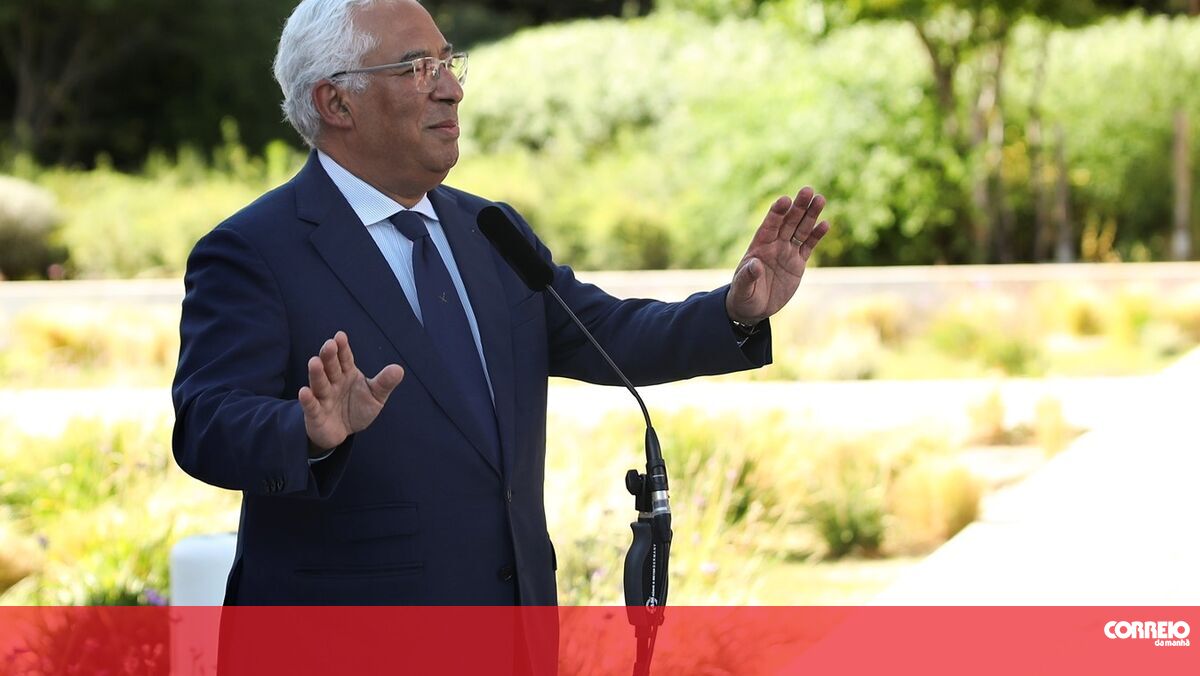On Monday, the prime minister said that Portugal cannot “lose as much time” in the fight against climate change, given that investments in renewable energy, such as the Tâmega gigabattery, which includes three dams and which was this Monday, are of decisive importance. open.
Antonia Costa visited the hydroelectric plant concessioned by Iberdrola and witnessed the commissioning of this hydroelectric plant inside the Caverna de Gouvães. Before his speech, he wanted to leave a “word of solidarity” to the mayors present and, above all, to those who are and are still facing the drama of wildfires.
Fires are still going on in Chavez, Mursa and Vila Poca de Aguiar, in the Vila Real area this Monday.
“We really don’t have time to waste on fighting climate change and what that implies in the new mobility policy, in the new energy efficiency policy and, above all, in growing investment in renewable energy,” said the First Minister.
And, as he pointed out, Portugal is “unfortunately in a special position to understand the urgency and emergency of the climate and all the ways that climate change is manifesting and, unfortunately, all the consequences” for the country.
“We are from the areas most affected by coastal erosion, we are from the countries most affected by increased drought, and we know that we are one of the countries where the risk of forest fires increases the most,” he stressed.
And, he added, “there is a fundamental fact” that “needs to be taken into account.”
“Even if humanity succeeds in meeting the goal set in the Paris Agreements to contain the increase in global temperature by one and a half degrees, even if we manage to achieve this goal, the risk of forest fires will still increase six times in the future, our country will,” he noted.
Therefore, he stressed, investing in renewable energy is “critical from the start” to combat climate change, and in the case of this Tâmega gigabattery, “the results are quite measurable.”
“With this investment, we will reduce the equivalent of 1.2 million tons of carbon dioxide (CO2),” he stressed.
The 1,158 megawatt (MW) Tamega Electric Power System (SET) is capable of storing 40 million kilowatts (kWh), the equivalent of the energy consumed by 11 million people over a 24-hour period in their homes, making it one of the largest in Europe. energy storage systems. The complex includes three hydroelectric power plants and three dams. In Daivoens and Guvaens the project is completed, while in Alto Tamega it is due to be completed in two years.
For António Costa, “investing in renewable energy is also fundamental from an economic point of view.”
“We don’t have natural gas, we don’t have oil, we don’t have fossil fuels, and so we import all the energy we consume. But, on the contrary, we have water resources, the sun, wind, we can produce the energy that we consume ourselves, and one day we will be able to produce enough energy to stop being energy importers and become its exporters,” he said.
For the prime minister, this “case is very indicative.” “This Iberdrola gigabattery allows us to produce energy and, above all, allows us to import 160,000 tons less oil to produce the same amount of energy,” he said.
And, he added, “when other European countries are debating whether they should resume electricity production from fossil sources such as coal, we look at this project and say: only this Iberdrola investment will produce energy equivalent to the Sines coal plant, which was closed last year.
“That’s why we can tell Europe as a whole that Portugal today is a country free of coal-based energy production, which we also had to import to produce the energy we consume,” he stressed.
SET is considered one of the largest hydropower projects in Europe over the past 25 years and represents a total investment of 1,500 million euros according to Iberdrola and mobilizes many companies and workers during construction.
This venture represents over 50% of the goals of the National High Hydropower Dam Program (PNBEPH).
Author: Lusa
Source: CM Jornal




